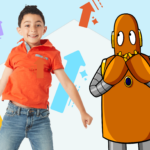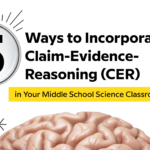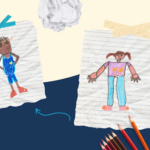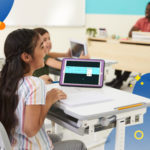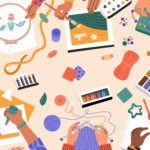There are many ways to build humor and levity into learning with serious benefits for students and teachers alike, so don’t mistake the classroom filled with giggles as lacking rigor.
Continue Reading5 Ways to Incorporate Claim-Evidence-Reasoning (CER) in Your Middle School Science Classroom
As they engage with exciting and relatable guiding questions that connect with their day-to-day lives, students learn that everything in the world around us is science, and anyone can be a scientist. It all starts with tapping into curiosity and asking questions.
Continue ReadingNavigating Traumatic Moments: Guidance and Resources from a School Psychologist
When faced with trauma or tragedy, it’s important to be proactive about supporting each other and the children in our care. We connected with a district school psychologist and mental health advisor to BrainPOP for guidance and recommended resources to help navigate difficult conversations.
Continue ReadingSelf-Reflection and Self-Assessment: 8 Ways to Help Students Take Center Stage in Their Learning
When we move beyond traditional assessments and rubrics, and build in everyday moments of self-reflection and self-assessment, students are empowered to think and talk about their progress with a growth mindset. These skills are crucial for a lifetime of learning.
Continue ReadingSupporting Readers with Microsoft Immersive Reader and BrainPOP
We connected with two educators to learn how they’re leveraging this new feature, and the impact they’re seeing among students.
Continue Reading5 Teacher-Tested Tips to Make Art a Classroom Priority
Even if your school doesn’t have dedicated art rooms or programs, the arts can still have a big impact on students when integrated with subjects across the curriculum. Why not bring more of that magic into the classroom?
Continue Reading

